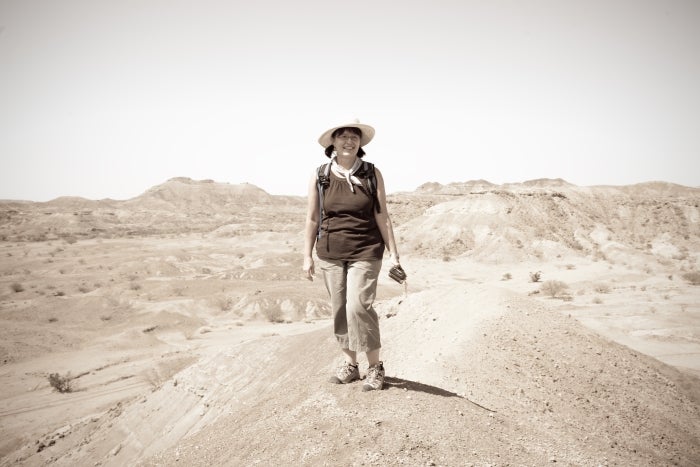The American Association for the Advancement of Science (AAAS), the world’s largest general scientific society and publisher of the Science family of journals, has elected Kaye E. Reed from Arizona State University to the newest class of AAAS Fellows, which is among the most distinguished honors within the scientific community.
The 2023 class of AAAS Fellows includes 502 scientists, engineers and innovators spanning all 24 AAAS scientific disciplinary sections.
Election as an AAAS Fellow is an honor bestowed upon AAAS members by their peers for their scientifically or socially distinguished efforts to advance science.
Reed, ASU President’s Professor in the School of Human Evolution and Social Change and research scientist with the Institute of Human Origins, was cited for her “distinguished contributions to the study of human evolution, particularly for groundbreaking work in reconstructing early hominin paleoecology and fossil discoveries related to the origins of the genus Homo.”
Working for over 20 years as director of the Ledi-Geraru Research Project in Ethiopia and as a member of the research team at Hadar, Ethiopia — the site where the famous “Lucy” fossil skeleton was discovered — Reed’s research has mainly focused on understanding the paleoenvironment, or what the ancient plant, animal and climate environments were millions of years ago. Her research has also taken her to South Africa, Morocco and Spain.
In 2013, her research team in Ledi-Geraru discovered a 2.8-million-year-old jawbone that pushed back the first known appearance date of our own genus Homo by approximately 400,000 years.
Reed’s current field and laboratory research is focused on the appearance of the genus Homo and the disappearance of Australopithecus afarensis in the lower Awash Valley in the Afar region of Ethiopia and understanding the behavioral ecology of hominins that used bifacial stone tool technology in the Pleistocene of South Africa.
“This recognition underscores her decades-long research on human evolution and her significant contribution to science,” said Yohannes Haile-Selassie, director of the Institute of Human Origins and the Virginia M. Ullman Professor of Natural History and the Environment in the School of Human Evolution and Social Change.
“Professor Reed’s distinguished scholarship on the origins of our genus Homo is complemented by her superb academic service and teaching record. Kaye Reed is former director of the school and a professor beloved by her students. This incredible recognition of her scholarship caps an illustrious career as a teacher and academic leader,” said Patrick Ryan Williams, professor and director of the School of Human Evolution and Social Change.
Reed has had many leadership roles throughout her career, including as biological anthropology program director for the National Science Foundation. She was the director of the School of Human Evolution and Social Change from 2016–2020, is a coeditor of three books, including “The Paleobiology of Australopithecus,” has supervised 13 doctoral graduates and inspired the creation of an endowment at ASU to promote research scholarships for women in science, the Kaye E Reed Research Scholarship.
“I am very excited and honored to be named an AAAS Fellow,” said Reed.
More University news

ASU community exceeds goal, raises $835K for Valley of the Sun United Way
The Arizona State University community stepped up and raised over $835,266 for the Valley of the Sun United Way — exceeding the $800,000 goal for 2024.Of the total, $802,192.17 was raised through…

ASU launches online ocean futures undergraduate degrees
Our oceans make up three quarters of the planet’s surface and contain most of its biodiversity. Due to rapid and global changes, they are endangered — making more urgent a deeper knowledge of ocean…

ASU public affairs graduate programs rise to No. 11 in nation in US News & World Report’s 2025 rankings
Arizona State University rose to No. 11 nationwide for best graduate public affairs programs in U.S. News & World Report’s 2025 rankings, the magazine announced.The ranking, released April 8,…



